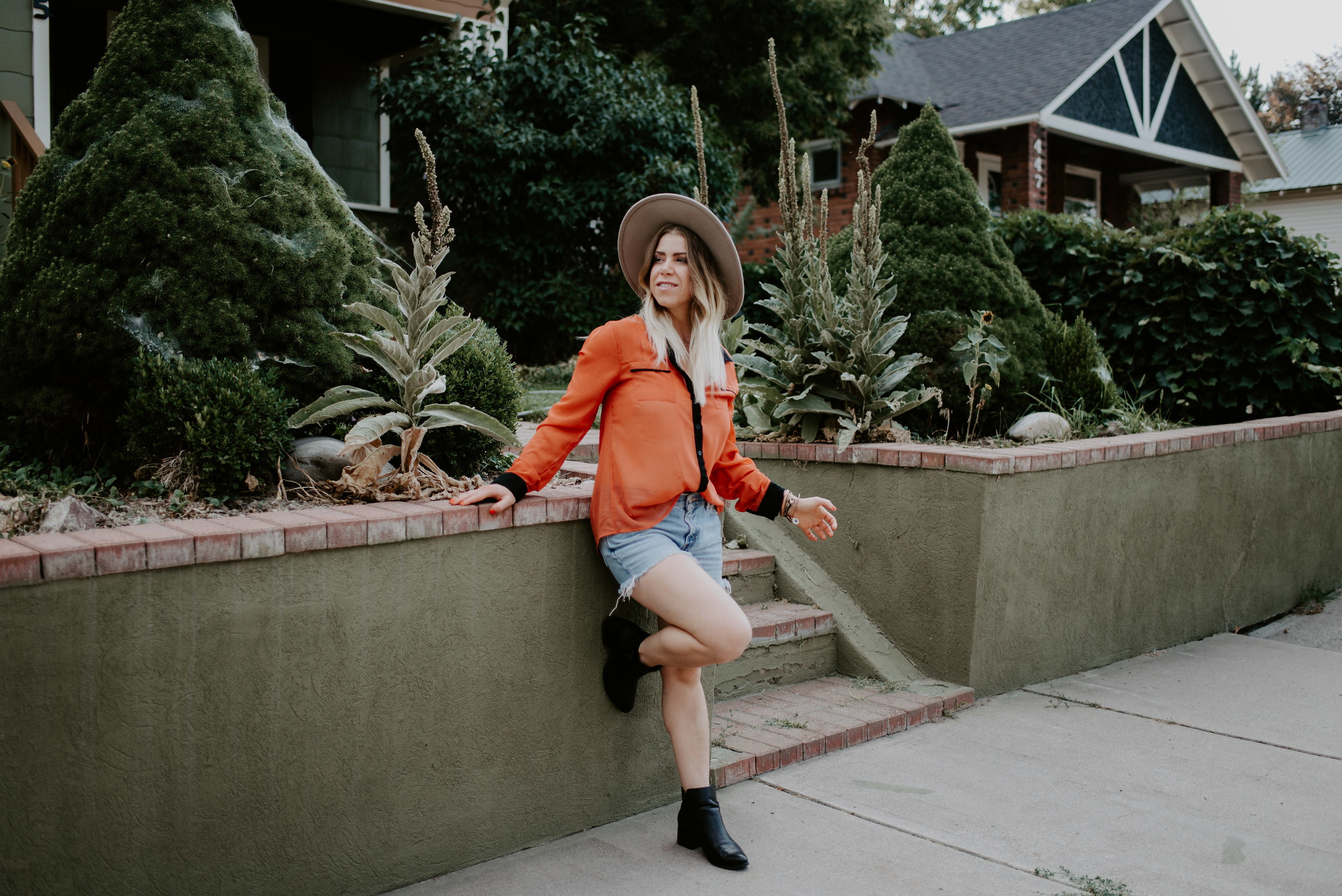Images by Brooke Richardson Photography
I have the kind of friends who make you feel like you’re the coolest person on earth. They make you feel like there’s nothing they’d rather be doing than hearing about your newest venture, or your date last night, or your upcoming getaway. They actively listen and ask follow-up questions. They present the appropriate corresponding facial expressions (eye rolls, knowing looks, cheesy grins) and happy dance as necessary.
They friggin’ rule.
They also inspire me to be better.
I hope you have friends like this too, because as I’m sure you’ve realized by now, not everyone is like this. If you don’t believe me, tag along on 90% of my dates!
For a number of reasons (social anxiety, lack of self awareness, self absorption, insecurity, all of the above, etc) people keep the spotlight on them. They’ll tell you allllll about themselves and once you’ve finally politely excused yourself, you realize that after 20 minutes of “conversing” they didn’t ask you a single question about you…but you know all about their new car and their daughter’s bout with the flu and their upcoming vacation and and and…
In moments like this, it’s easy to get annoyed, but important to remember some people just don’t know better! And/or they’re socially unsure of themselves and find it easier to rely on what they do know: themselves/their lives. It’s their comfort zone. It doesn’t even dawn on them to ask about you.
“Don’t try to impress others. Be humble. Take an interest in others.”
Another reason for monologues is they feel compelled to “peacock” and show/tell you how great they are. Don’t get me wrong, I’ve dated some awesome, considerate guys, but man - I’ve also dated beyond my share of peacocks. I’ll get to the end of the date and know they couldn’t tell you three facts about me because we focused solely on them the.entire.time. They didn’t bother to reciprocate any of the questions I initiated. Or if they did…they’d interrupt me to hijack the spotlight and turn it back to them. Not very enjoyable, as I’m sure you can imagine. When I’m particularly maxed out on their showboating, I’ll just clam up and stop supplying questions/conversation starters. I’ll watch them fidget awkwardly in the silence, marveling how they don’t realize that to end the silence, all they have to do is ASK ME A QUESTION. These guys.
“You can make more friends in two months by becoming interested in others than you can in two years by trying to get other people interested in you.”
Feeling and expressing a genuine interest in others is an INVALUABLE friendship trait. Hell, not only a friendship trait - a human trait! Making people feel worthy of interest and attention is the surest way to not only win people over but - more importantly - to connect with them. Making an effort to listen to and connect with others fosters empathy, understanding, mutual interest, etc. All the good things!
“Tips to be more charming:
1. Smile more
2. Remember names
3. Be authentic
4. Be curious
5. Offer value”
But genuine is the key word here. Authenticity is crucial. People can immediately sense when you’re merely going through the motions and just posing. Ain’t nobody likes a poser. And it’s not enough to just ask questions - you must also listen! How obnoxious is it when someone asks you a question then immediately checks out by scanning the room/scrolling on their phone/interrupting your story/etc.
Here are some tips for enhancing your social interactions by cultivating and expressing genuine interest in others. In other words, here’s guidance on how to be the kind of person others want to be around!
Offer customized compliments
Sure, it’s nice to hear “You look good” but how much better do you feel when someone notices and compliments you on something special and specific to you?
Examples: “That color looks amazing on you!” or “Your home has the most inviting energy!”
Ask specific, attentive questions
Show you’re truly interested in learning more about the person/the topic they’re discussing. Listen to what they say and ask follow-up questions.
If you’re not sure what to ask, maybe request clarification or note how interesting what they said is and ask, “What do you mean by ___?”
It’s important to come from a place of curiosity, rather than judgment.
If you happen to know more on the subject - keep it to yourself! It’s not a “who knows more” contest so just chillaxxxx and let them share what they know. And who knows - you might even learn something from them! At the very least, you’ll hear a fresh perspective.
Try to maintain that balance of showing interest without getting all up in their business. Ensure you’re on solid footing before asking probing questions.
Reciprocate their questions
Piggybacking off the previous point, is a great hack for when you’re feeling socially unsteady and not up to carrying the convo is simply to ask them what they asked you!
It’s important to mention some people don’t like talking about themselves: they’re shy, they’re insecure, etc. So honor where they are and try to find a common interest, or focus on safe, general topics like current events/mutual contacts (sans the gossip because gossiping is ew).
The more you really listen and get to know people, the more you realize how FASCINATING people really are! I can’t tell you how many times people have surprised me with their experiences/back stories/insights/etc. Everyone has a story and everyone has something to teach us.
xx,
-w-
“When you are alive with joy, gratitude, and genuine interest in others, you are your most beautiful. Remember that. Now go stun the world.”




































